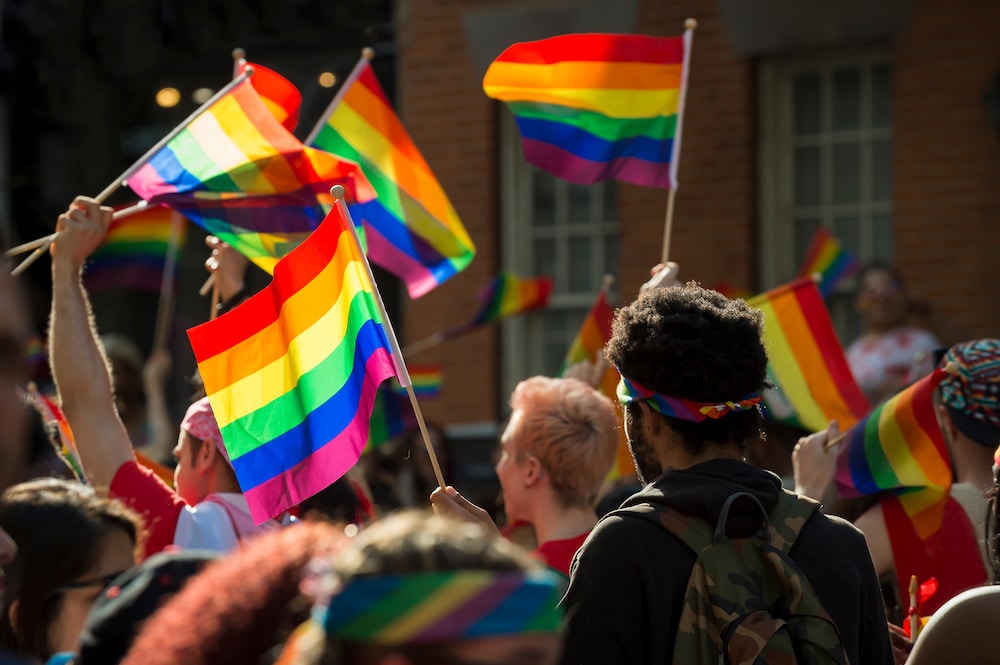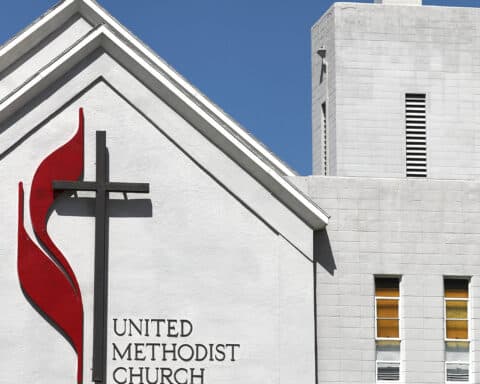The prospect of facing another June can be uncomfortable for Catholics. Everywhere we turn, rainbows and other symbols of today’s LGBTQ movement will be emblazoned. Stores, restaurants, civic buildings, and even ATMs will be branded with the flag and other symbols of “pride” month.
Google Doodles celebrate “pride” activists. Stores like Target have released “pride” clothing collections for adults and children. Increasingly, even workplaces are hosting “pride” month events.
It is an unpleasant and difficult time for Catholics. Family members, work colleagues, perhaps even friends from church will evaluate the status of relationships based on whether or not we embrace the symbols of “pride” month. Displaying — or not displaying — a flag or sticker becomes an easy way to size a person up. Liking a social media post, writing a comment or resharing a video are ways of demonstrating that you are an “ally.” Attendance at prominent civic events is expected of public officials.
Adopting a symbol of the pride movement puts a person squarely in conformity with current trends. Wearing the symbol announces to all an affiliation strong enough to secure social status and workplace advancement. But at what cost?
Unwilling or unable to speak out against events or branding that does not accord with a well-formed Catholic conscience leaves many of the faithful frustrated and trapped. Some people don’t have the spirit or mindset (or even formation) to speak out against what they know in their hearts is wrong.
But the mistake here is to believe that doing or saying nothing is wrong. In some cases, silence or quiet refusal to participate is the best option. To simply say, “I’m not comfortable giving my pronouns” in a workplace meeting can be a powerful resistance to a compulsory and exclusionary ideology. But not everyone can say even that. Maybe quietly removing them from your email signature is better.
That’s the great irony of the “pride” movement. Demanding acceptance and inclusion, people of goodwill who adhere to biblical morality are being systematically pressured to assent to what the culture views as a new morality that does not represent their religious beliefs. And more ironic still, the slogan “silence is violence” inflicts violence on a person’s conscience by compelling speech. By demanding affirmation, the LGBTQ movement impinges on the personal freedoms of each of us to resist conformist thinking.
Silence is not violence. In fact, silence may well be the only recourse for a conscience that cannot embrace the ideals of an aggressive and dogmatic agenda. And here, Catholics and others of goodwill must be reassured. Refusing to adopt the symbols of “pride” month is not only a valid moral option; in some cases, it may be the only option.
Loving our brothers and sisters who identify as LGBTQ cannot be reduced to adopting a cultural trend or a political platform. Helping our brothers and sisters who struggle with their sexuality demands that we live together the fullness of the Gospel, not simply emblazon ourselves or our spaces with totems. We cannot allow authentic Christian living to be abridged to even seeming conformity with a vision for humanity fundamentally at odds with the teachings Jesus and his disciples offered to the Church two millennia ago. The accompaniment demanded by Jesus cannot be fulfilled by adopting signs and symbols, especially if one adopts them out of a desire to get along.
Often, complying with this particular agenda is driven by fear — fear of alienating loved ones (siblings or children), fear of losing social standing, fear of getting passed over for promotion. As Christians, we must never succumb to fear. In fact, it is a basic maxim of the spiritual life to avoid making decisions out of a place of fear or desolation. We know that, whatever the cost, the Lord will give us the strength to suffer wrongs well in his name.
But also, to speak when we would rather not on an issue we do not want to embrace is a betrayal of conscience. It is, in effect, “canceling” our own heart to set aside the dictates of conscience and abide by secular expectations, rather than withstanding them in silence.
Silence offers space for reflection, for dialogue and for compassion. Dissenting from the pride movement’s contentious and quarrelsome demand for ideological compliance is an admirable and Christian response this June. Don’t let anyone tell you otherwise.





